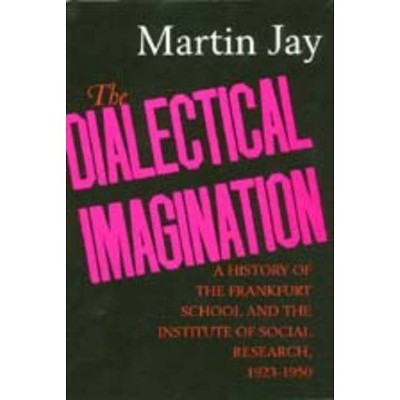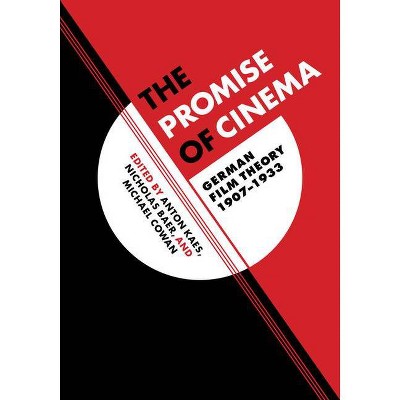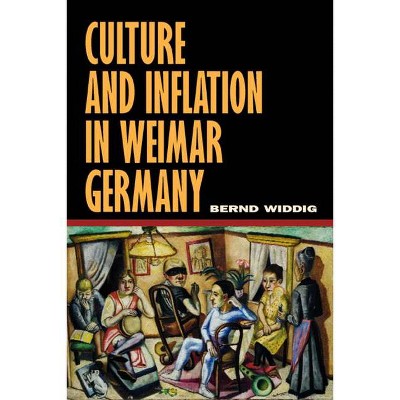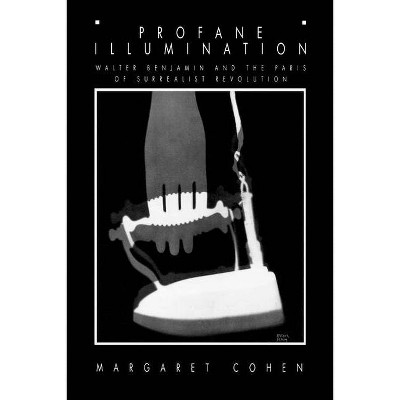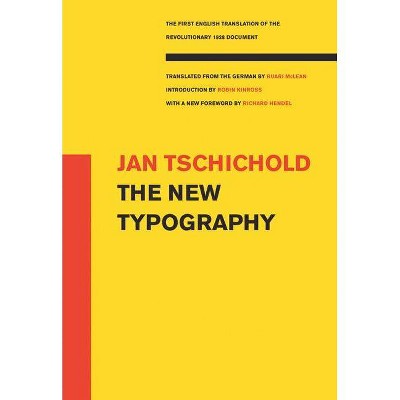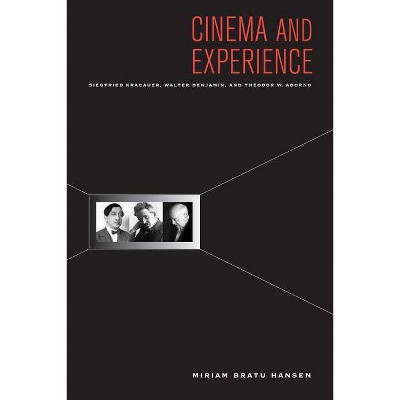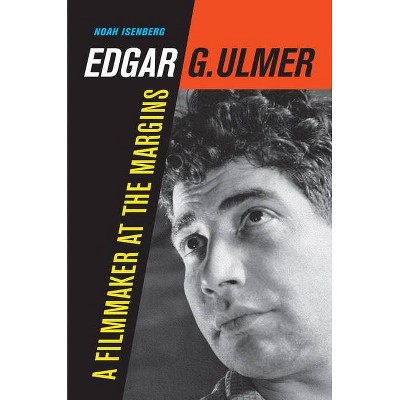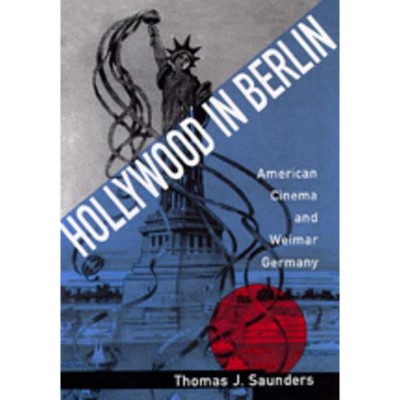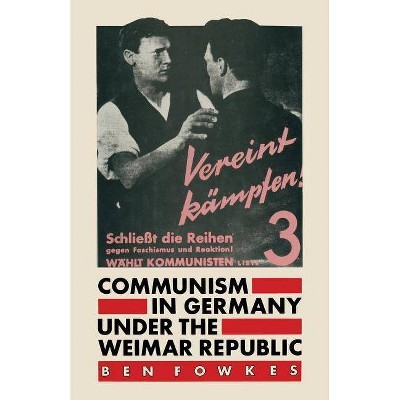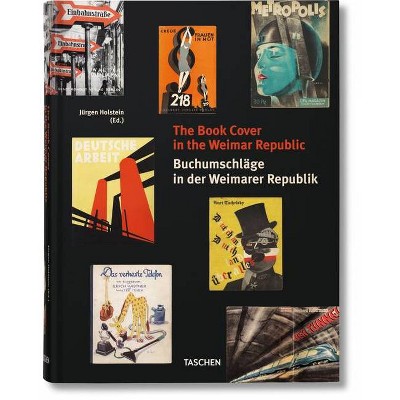The Weimar Republic Sourcebook, 3 - (Weimar and Now: German Cultural Criticism) by Anton Kaes & Martin Jay & Edward Dimendberg (Paperback)
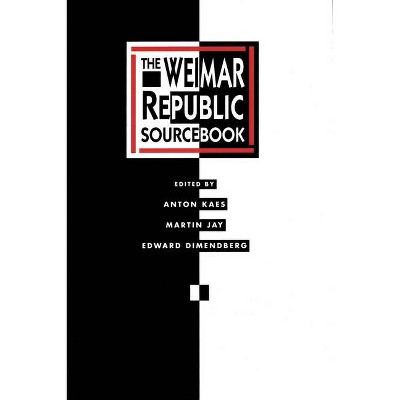
Similar Products
Products of same category from the store
AllProduct info
<p/><br></br><p><b> About the Book </b></p></br></br>The Weimar Republic's political and cultural lessons retain relevance for all who seek to understand the tensions of our age. This book represents the most comprehensive documentation of Weimar culture, history and politics assembled in any language. It invites a wide community of readers to discover the richness and complexity of the turbulent years in Germany before Hitler's rise to power.<p/><br></br><p><b> Book Synopsis </b></p></br></br>A laboratory for competing visions of modernity, the Weimar Republic (1918-1933) continues to haunt the imagination of the twentieth century. Its political and cultural lessons retain uncanny relevance for all who seek to understand the tensions and possibilities of our age. <i>The Weimar Republic Sourcebook</i> represents the most comprehensive documentation of Weimar culture, history, and politics assembled in any language. It invites a wide community of readers to discover the richness and complexity of the turbulent years in Germany before Hitler's rise to power.<br /><br />Drawing from such primary sources as magazines, newspapers, manifestoes, and official documents (many unknown even to specialists and most never before available in English), this book challenges the traditional boundaries between politics, culture, and social life. Its thirty chapters explore Germany's complex relationship to democracy, ideologies of reactionary modernism, the rise of the New Woman, Bauhaus architecture, the impact of mass media, the literary life, the tradition of cabaret and urban entertainment, and the situation of Jews, intellectuals, and workers before and during the emergence of fascism.<br /><br />While devoting much attention to the Republic's varied artistic and intellectual achievements (the Frankfurt School, political theater, twelve-tone music, cultural criticism, photomontage, and urban planning), the book is unique for its inclusion of many lesser-known materials on popular culture, consumerism, body culture, drugs, criminality, and sexuality; it also contains a timetable of major political events, an extensive bibliography, and capsule biographies. This will be a major resource and reference work for students and scholars in history; art; architecture; literature; social and political thought; and cultural, film, German, and women's studies.<p/><br></br><p><b> From the Back Cover </b></p></br></br><i>The Weimar Republic Sourcebook</i> is an invaluable resource for understanding one of the most important and resonant eras of the twentieth century. Since the Weimar debate has continued to repeat itself, albeit with less intellectual brilliance, this book is as much about the present as about the past. Here is the Weimar era in all its many-voiced and eloquent complexity: most of these texts, even those by the most famous names of the period, appear for the first time in English. This is an indispensable, enthralling, properly ambitious book.--Susan Sontag<p/><br></br><p><b> Review Quotes </b></p></br></br><br><i>"The Weimar Republic Sourcebook</i> will almost certainly transform the way the intellectual legacy of the Weimar Republic is thought about and taught in the English-speaking world." -- "Modernism/modernity"<br><br>"A mosaic panorama. . . . Interweaving classic texts with a wealth of excavated matter, [the editors] have done a great service to anyone interested in what modernism was and, through reinterpretation, may yet become."-- "San Francisco Chronicle"<br><br>"This is an essential book for anyone teaching a course on the Weimar Republic, and advanced students should be advised to purchase it."-- "German History"<br><br>"Unquestionably, <i>The Weimar Republic Sourcebook</i> is a wonderful resource. . . . Courses on German culture could easily be built around the book's chapters. In addition, it should be on the reading list of all prospective anthologists." -- "H-German"<br><p/><br></br><p><b> About the Author </b></p></br></br><b>Anton Kaes</b> is Professor of German and Director of Film Studies at the University of California, Berkeley. He is author most recently of <i>From Hitler to Heimat: The Return of History as Film</i> (1989). <b>Martin Jay</b> is Sidney Hellman Ehrman Professor of History at the University of California, Berkeley. His books include <i>Downcast Eyes: The Denigration of Vision in Twentieth-Century French Thought</i> (California, 1993). <b>Edward Dimendberg</b> is Assistant Professor of German Studies, Film and Video Studies, and Architecture at the University of Michigan.
Price History
Price Archive shows prices from various stores, lets you see history and find the cheapest. There is no actual sale on the website. For all support, inquiry and suggestion messages communication@pricearchive.us
